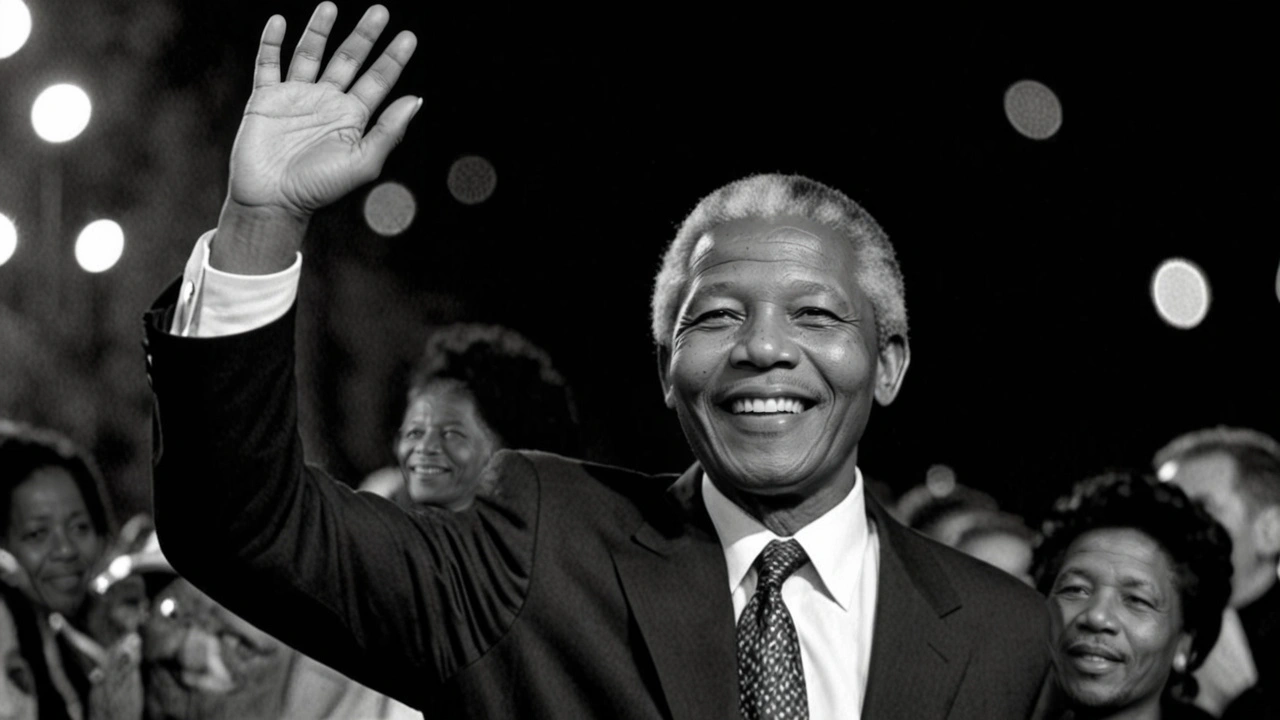SA Innovation Campus Empowers Communities with Tech Skills on Mandela Day
In a monumental tribute to the enduring legacy of Nelson Mandela, the SA Innovation Campus recently celebrated Mandela Day with a transformative initiative aimed at empowering communities through technology skills training. Recognizing the urgent need for digital literacy and skills development in underprivileged areas, the campus designed a comprehensive program that provided participants with hands-on learning experiences in various tech-related fields. From coding and software development to digital marketing and cybersecurity, the initiative sought to equip individuals with the tools necessary to thrive in today's digital economy.
This effort signifies a profound commitment to corporate social responsibility (CSR), serving as a prime example of how businesses can contribute positively to society. The SA Innovation Campus not only addressed immediate educational needs but also laid down a foundation for sustainable growth and development. By teaching essential technological skills, they created opportunities for attendees to improve their employment prospects, potentially lifting themselves and their families out of poverty.
The event was meticulously planned, ensuring that participants received instruction from experts in the tech industry. Volunteers included software engineers, digital marketers, and cybersecurity specialists who devoted their time and expertise to make a lasting impact. The training sessions were interactive and engaging, encouraging participants to ask questions and solve problems creatively. These experts also shared their professional journeys, providing inspirational stories that motivated many to pursue careers in technology.
Aligning with Nelson Mandela's Vision
Nelson Mandela once said, "Education is the most powerful weapon which you can use to change the world." This philosophy has profoundly influenced the mission of the SA Innovation Campus, especially in their Mandela Day initiative. By focusing on technology education, they are not merely imparting knowledge but are also empowering individuals to become agents of change in their communities. The skills acquired during the training sessions could catalyze a wave of innovation and entrepreneurship in areas that need it the most.
The choice of Mandela Day for this initiative is particularly significant. Established in 2009, Mandela Day is a global call to action that celebrates the idea that everyone has the power to make an impact. It encourages individuals and organizations to take 67 minutes—representing the 67 years Mandela fought for social justice—to contribute in a meaningful way. The SA Innovation Campus extended this spirit by turning 67 minutes into a day-long event filled with educational opportunities, thus amplifying their impact.
Feedback from participants was overwhelmingly positive. Many expressed gratitude for the opportunity to learn new skills and gain insights into the tech industry. Some remarked that the training had opened doors they had never thought possible, fueling their aspirations for a brighter future. The stories of individual transformation were numerous, each adding to the event's success and highlighting the importance of such community-focused initiatives.
A Blueprint for Future CSR Initiatives
The success of this Mandela Day event could serve as a blueprint for other organizations looking to make meaningful contributions to society. The SA Innovation Campus has set a high standard, showing that CSR initiatives do not have to be mere token gestures but can be impactful, long-lasting, and life-changing. By aligning their efforts with educational empowerment, they have addressed one of the core issues affecting disadvantaged communities—lack of access to quality education and job opportunities.
The broader implications of such initiatives are substantial. As technology continues to evolve and integrate into every aspect of modern life, the digital divide becomes more pronounced. Initiatives like these help to bridge that gap, providing equal opportunities for individuals regardless of their socio-economic background. They also contribute to the creation of a more inclusive and diverse tech industry, enriching it with a wide range of perspectives and talents.
In summary, the SA Innovation Campus's Mandela Day initiative is a shining example of how educational empowerment can serve as a vehicle for social change. By offering technology skills training to the underprivileged, they have helped to foster a more inclusive, knowledgeable, and empowered community. As other organizations look to their own CSR strategies, they would do well to consider the profound impact of education-focused initiatives. Through collective efforts, we can hope to see a future where everyone has the tools and opportunities needed to succeed.







6 Comments
Behold! In the echo of Mandela’s spirit we find a symphony of possibility, a chorus that demands our hands to code, our minds to create, and our hearts to ignite-truly, a day where 67 minutes stretch into a lifetime of transformation!-this is not merely an event, it is a manifesto of hope.
Oh great, another corporate “giving back” day-because nothing says change like a one‑day workshop sponsored by a tech campus.
The initiative stands as a concrete illustration of how targeted skill development can catalyze community uplift.
By teaching coding fundamentals, participants acquire a language that is increasingly indispensable in the modern economy.
Digital marketing lessons provide a bridge between local entrepreneurship and global marketplaces.
Cybersecurity awareness equips individuals to protect their personal data and future enterprises from emerging threats.
The hands‑on approach transforms abstract concepts into tangible achievements, reinforcing confidence.
Moreover, the presence of industry professionals offers mentorship that extends beyond the classroom.
Such mentorship can spark aspirations that were previously unimaginable for many attendees.
The program also aligns with Mandela’s belief that education is a powerful weapon for societal change.
By channeling this philosophy into technology, the campus addresses both the digital divide and unemployment.
Sustainable impact emerges when learners become educators themselves, propagating knowledge throughout their neighborhoods.
This ripple effect can lead to the formation of local tech collectives, driving innovation from the ground up.
Corporate social responsibility, when executed with depth, transcends tokenism and creates lasting value.
The SA Innovation Campus demonstrates that a well‑structured CSR project can be both altruistic and strategically sound.
As other organisations observe this blueprint, they may adopt similar models that prioritize skill transfer over mere donations.
The broader societal benefit includes a more inclusive tech sector that reflects diverse experiences and perspectives.
Ultimately, initiatives like this nurture a generation capable of shaping their own futures while honoring Mandela’s legacy.
We commend the dedication shown by both trainers and participants; such collaborative learning environments lay the foundation for resilient career pathways, and we anticipate that these newly acquired competencies will translate into measurable socioeconomic improvements.
From the bustling streets of Johannesburg to the historic avenues of South Africa’s liberation, technology becomes the modern drumbeat of freedom-let us celebrate the cultural renaissance that arises when knowledge is shared across borders and generations.
Fantastic initiative, truly inspiring! 😊